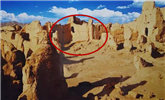李少君谈自然观:诗意地栖居在世界中
2016年10月22日 19:02
来源:凤凰文化
在诗歌界,我经常被人称为“自然诗人”,可能是我比较喜欢写自然,生活方式和思维方式也接近自然的观念。我的自然观,主要受到两个方面影响:一是中国古典的自然观。自然,在中国古代是一个

个人化写作与外来文化影响
10月21日上午,2016凤凰·鼓浪屿诗歌节第二天,主题为“个人化写作与外来文化影响”的诗歌国际论坛在鼓浪屿举办。诗人赵野,赵四,李少君,树才,李元胜,默默,韩庆成,廖伟棠,林于弘、黄冈、加拿大诗人洛尔娜·克罗奇(Lorna Crozier),英国诗人李道(Richard Bruns),印度汉学学者、诗人普利亚达西·墨普德教授、韩国翻译家金泰成等人在论坛做出精彩又有见地的发言。论坛由诗人、翻译家、评论家汪剑釗和诗人北塔主持。
鼓浪屿拥有“万国建筑博览”美誉,东方文化与西方文化交会于此,闽南文化与外来文化共融于此。“鼓浪屿女婿”林语堂自评“两脚踏东西文化,一心评宇宙文章”。于诗人而言,外来文化将如何影响个人写作?作为“世界人”的诗人,一方面孜孜不倦地从自身文化中汲取养分,另一方面又无时不刻不体会着全球化带来的“文化震撼”,从而形成观念的冲突、矛盾、变形、融合、促进,进而可能形成写作的自我革新。

李少君
在诗歌界,我经常被人称为“自然诗人”,可能是我比较喜欢写自然,生活方式和思维方式也接近自然的观念。我的自然观,主要受到两个方面影响:
一是中国古典的自然观。自然,在中国古代是一个含义非常丰富复杂的概念,除了指大自然之外,也可形容一种状态,比如自然而然,任其自然;还可以是一种生活方式和精神理念……这些意思又相互关联相互缠绕,既有时间的维度,也有空间的维度,显示出自然一词具有的张力。老子曰:“人法地,地法天,天法道,道法自然”,作为中国文化最重要的一个价值观“道法自然”,就同时蕴含了这多种意义。
《文心雕龙》很早就将自然与人文的对应关系阐述得很详尽:“日月叠璧,以垂丽天之象;山川焕绮,以铺理地之形:此盖道之文也。”自然山水是诗歌永恒的源泉,是诗人灵感的来源。道法自然,山水启蒙诗歌及艺术。“外师造化,中得心源”,几乎是中国诗歌和艺术的一个定律。
人们还认为山水本身是一种伟大的艺术形式和永恒的精神品格,对此,作家韩少功分析:“在全人类各民族所共有的心理逻辑之下,除了不老的青山、不废的江河、不灭的太阳,还有什么东西更能构建一种与不朽精神相对应的物质形式?还有什么美学形象更能承担一种信念的永恒品格?”所以,人们也以山水比拟人格,“仁者爱山,智者爱水”,成为人物品评的一个标准。
自然山水具有强大的精神净化作用,灵魂过滤功能。诗人谢灵运很早就说:“山水含清晖,清晖能娱人”;汤传楹《与展成》文中称:“胸中块垒,急须以西山爽气消之”;南朝吴均《与朱元思书》里更进一步说:“鸢飞戾天者,望峰息心;经纶事务者,窥谷忘返”……看见山水,人们可以忘记一切世俗烦恼,可以化解所有焦虑紧张,所以古人称“山可镇俗,水可涤妄”,山水是精神的净化器。西方也有类似说法,美国作家华莱士斯泰格纳认为现代人应该到自然之中去“施行精神洗礼”。
自然山水这种巨大的精神净化功能和灵魂疗治作用,导致中国古代山水诗和山水画盛行,山水诗歌成为诗歌的主流。谢灵运、陶渊明、李白、杜甫、白居易、苏东坡等等都是伟大的山水诗人,写下过大量的经典杰作。山水诗可以安慰心灵,缓解世俗的压抑。
二是来自西方的现代生态主义思潮。尤其是美国的自然思想和理论。
西方早期把人与自然对立,视自然为征服对象和工具。上帝死了,人僭越上帝之位,自认为是世界的主人,自然的征服者,不再尊重自然和其他物种,将它们视为可任意驱使随意采用的资源和材料。自然问题从此变成一个经济问题或科技问题,而非人类所赖以依存的家园,与人类休戚相关的安居之所。自然从此陷入万劫不复之地。
后来,西方的智者也意识此一危机的严重性,比如海德格尔就呼吁回复天地人神的循环,人只是其中的一环,反对把人单独抽取出来,作为世界的中心和主角,凌驾于万物之上。可以说与中国古人智慧相呼应。
在工业化浪潮中,也许因为相对后发,美国对现代文明的负面作用反省较早。有“美国文明之父”之称的爱默生曾经强调:人类应该遵守两句格言,一是认识你自己,二是研习自然。爱默生号召美国文学回归自然,他甚至说:欧洲大陆文化太腐朽了,需要自然之风来吹拂一下。在很多学者看来,正是自然文学的发展,使美国文学区别于重人文的欧洲文学,使新大陆区别于旧大陆。确实,美国自然文学经典比比皆是,惠特曼的《草叶集》、梭罗的《瓦尔登湖》、奥尔多·利奥波德《沙乡年鉴》等等。
自然文学可以说是美国的主流文学,美国自然思想和理论的影响力也很大。奥尔多·利奥波德是“土地伦理”的提出者,他说:“人们往往想当然地认为野生生物就像和风和日出日落一样,自生自灭,直到它们在我们面前慢慢地消失。现在我们面临的问题是高质量的生活是否要在自然的、野生的和自由的生物身上花费钱财。我们人类对于整个生物界来说还只是很少的一部分,那么能够真真正正看到自然界中的鹅群的机会比在电视上看更重要,有机会发现一只白头翁就像我们有权利说话一样神圣不可侵犯。”
美国诗人施耐德在现代语境下,提出过“地域生态性”概念,强调保持地域生态完整性,保护地域的整体生态,强调人与自然、地方的和谐相处,施耐德被认为是最具现代生态意识的诗人。
我的写作,就在中西方两种自然思想和观念之中,根据个人的体会,寻找自己的路径。比如我提出过蕴含现代自然观念的诗歌情境论。
按《新华字典》解释:情境是指情景,境地。在这里,我将情与境作分别的理解,这一点,王国维先生早就说过:“文学中有二元质焉:曰景,曰情。”景和境意思接近,但“境”除了场景、现场、场域的含义,还有境界的意味。因此,情境主要包含两个部分:情和境。情即情感。境,可分为客观之境和主观之境。客观之境是具体场景场域,自然之境;主观之境,则类似境界。
从诗学的角度来认识,情境,其本质就是将情注入境中,自成一个世界;或者说,用境来保存情,使之永存,使之永远。情因有境得以保存长久,境因有情而被记忆,具有了生命,有了回味。
境界是古典文学的核心概念。中国诗歌强调境界其实与尊崇自然密切相关。在诗歌中,境界唯高。何谓境界?我的理解就是指个人对自然的领悟并最终与自然相融和谐共处。唐僧园晖所撰《俱舍论颂稀疏》称:“心之所游履攀援者,故称为境。”哲学家冯友兰认为:“中国哲学中最有价值的部分是关于人生境界的学说”,学者张世英说:“中国美学是一种超越美学,对境界的追求是其重要特点。”
境界,就是人的精神层次,但这一精神层次的基础就是自然与世界,反映人的认识水平、心灵品位。王国维在《人间词话》里称:“有境界则自成高格”。境界里有景、有情,当然,更有人——自我。最高的境界,是“采菊东篱下,悠然见南山”,“纵浪大化中,不喜亦不惧”,是“游于艺”,是“天人合一”,是安心于自然之中。追求境界,就是寻找存在的意义,其本质是一种内在超越。学者胡晓明称:“境界的要义,就是创造一个与自我生命相关的世界,在其中安心、超越、生活”。好的诗歌,就应该追求境界。
境界的相关条件是自然,或者说,没有自然作为前提,就没有什么境界。古人早就说过:“山水映道”,瑞士哲学家阿米尔也称:“一片自然风景是一个心灵的境界”。学者朱良志说王维的诗歌短短几句,看似内容单调,但他实则是以情造出了一个“境”,比如“人闲桂花落,夜静春山空。月出惊山鸟,时鸣春涧中”,还有:“飒飒秋雨中,浅浅石溜泻。跳波自相溅,白鹭惊复下”……都独自构成了一个个清静自足但内里蕴涵生意的世界,是一个个完整又鲜活的“境”。
中国人认为自然万物都是有情的,世界是一个有情世界,天地是一个有情天地。王夫之在《诗广传》中称:“君子之心,有与天地同情者,有与禽鱼鸟木同情者,有与女子小人同情者……悉得其情,而皆有以裁用之,大以体天地之化,微以备禽鱼草木之几。”
古人推己及人,由己及物,把山水、自然、万物当成朋友兄弟,王维诗云:“流水如有意,暮禽相与还”;李白感叹:“相看两不厌,唯有敬亭山”;李清照称:“水光山色与人亲”;
辛弃疾则说:“我见青山多妩媚,料青山,见我应如是”;《世说新语》里记载:“简文帝入华林园,顾谓左右曰:‘会心处不必在远,翳然林木,便自有濠、濮间想也,觉鸟兽禽鱼,自来亲人。”古人移情于物,更有甚者,忘情融物,物我合一,庄周化蝶就是例证。
如此,人才能与自然和谐共处,在一个大的境界中,心与天地合一,生命与宇宙融为一体,人得以心安。最终,按海德格尔的哲学,人生活于天地人神的循环之中,“倾听”、“领会”与“守护”的那些个神秘的部分,“诗意地栖居在世界中”。
My View of Nature
Li Shaojun
In the poetry circle, I am often called “poetof nature”. Maybe it's because I like writing about nature and my lifestyle andmindset are akin to the nature. My view of nature is mainly influenced by thefollowing two aspects.
The first is China's classic view of nature.In ancient China, the word "nature"(自然) is a concept with various and complex meanings. Of course, it is usedto refer to the Mother Nature; it is used for describing a certain status, suchas “happen naturally", or "leave things to their nature and interveneno more”; and it also represents a specific lifestyle and mindset…All thesemeanings correlate and twine with each other, covering both temporal and spatialdimensions and showing a stunning flexibility. As Lao-Tzu said: "Man takesEarth as his model; Earth takes Heaven as its model; Heaven takes Tao as itsmodel; Tao takes what is natural as its model" (translated by GuZhengkun). The saying "Tao follows what is natural" is one of themost important values in Chinese culture, implying all the meanings mentionedabove.
Backto ancient China, the Chinese classic The Literary Mind and the Carving of Dragons has elaborated thecorrespondent relations between nature and humanities: "The sun and moonlike two pieces of jade manifest the pattern of heaven; mountains and rivers intheir beauty display the pattern of earth.(translated by Vincent Shih). This isthe pattern of Tao". Natural landscape serves as an eternal source thatconstantly outpours poems and brings inspirations to poets. "Tao followswhat is natural", so poetry and art are compositions inspired by naturallandscape. "Studying nature as a source of arts, and seeking the soul ofcreation from within", this could almost be regarded as a principle ofChinese poetry and arts.
Peoplealso believe that landscape itself is a great form of art embodying eternalspiritual quality, as analyzed by the famous writer Han Shaogong as follows:“Given the common mentality of the whole human being, what else other than theeverlasting Mountains, Rivers and Sun that is more suitable to construct aphysical incarnation of eternal spirits, and bear a permanent quality ofbelief? ” Therefore, people have been comparing personality with mountain andwater. The saying "The wise enjoy the waters, the benevolent enjoy themountains" has been a criteria for evaluating people in China.
Mountainsand water can effectively purify your spirit and soul. The ancient Chinese poetXie Linyun said: "Bathing mountain and lake alike in radiant sunlight.This radiant sunlight filled me with such joy". Another poet TangChuanying wrote in To Zhan Chen:"I urgently demand a cool breeze from the West Hill to relieve theblockage in my chest"; Wu Jun, a writer living in the Southern Dynasties,discussed further in his A Letter to ZhuYuansi: the heart of an ambitious achiever settles in peace when he seesthe mountain; the shrewd merchant forgets to go home when he glances at thevalley…When we appreciate mountains and rivers, we may temporarily forget allthe worries and concerns of the secular world and relieve ourselves fromanxieties and tensions. Therefore, ancient Chinese believed that"Mountains can help calm down vulgar desires, and rivers can flush awayimproper thoughts", regarding mountains and rivers as spirit purifier.There are similar statements in Western world, too. American writer WallaceStegne believed that modern men should walk into nature to "conduct aspiritual baptism".
Thehuge effect of spiritual purification and soul healing of mountains and riversresulted in the prevalence of landscape poetry painting in ancient China.Landscape poetry held a dominant position in China's ancient poetry. Famousancient Chinese poets such as Xie Lingyun, Tao Yuanming, Li Bai, Du Fu, BaiJuyi, and Su Dongpo were all great landscape poetry writers that created manyclassic masterpieces. Landscape poetry can comfort our mind and relievedepression from the secular world.
The second source of influences that shapesmy view is the thoughts of modern ecologism from western world, especially thethoughts and theories about nature from the US.
In earlier stages of history, the Westerncommunity put the natural world on the opposite side of the human being, andregarded nature as a target to be conquered and utilized. The God is dead andhis throne is usurped by Human, the master and conqueror of Nature with norespect for Nature and other species, which are sneered upon as materials andresources waiting to be exploited beyond any limits. After that, nature becamean economical or technological issue, instead of a home of vital significancefor our survival. At the same time, our Mother Nature was suffering with tears.
Later,some far-sighted Westerners realized how serious this risk had become. Forexample, Martin Heidegger called for the return to the cycle of heaven, earth,God and human being, among which we are only a component. He objected thathumanity should not isolate itself from the world, considering itself as thecenter and master of the planet, a group that can override all other creatures.His thoughts was akin to the ancient Chinese wisdom.
While the wave of industrialization was stillroaring, the US pioneered in the reflections of negative effects of moderncivilization, possibly due to the benefits of hindsight. Ralph Waldo Emerson,who was called the "father of American civilization", highlightedthat humans should follow two principles: know yourself, and investigatenature. He called on American literature to return nature, and even commentedthat the culture of mainland Europe was so stale that it needed a breeze fromnature. Many scholars believe that it was the development of naturalisticliterature that set American literature apart from Europeans who were trappedin their humanistic bias. American literature has indeed presented numerousnaturalistic classics, such as Leaves ofGrass by Whitman, Walden byThoreau, A Sand County Almanac byAldo Leopold and so on.
As naturalistic literature was once prevalentin America, the thoughts and theories of naturalism also commanded hugeinfluences. Aldo Leopold, who proposed "The Land Ethic", wrote that:"Like winds and sunsets, wild things were taken for granted until progressbegan to do away with them. Now we face the question whether a still higher'standard of living' is worth its cost in things natural, wild, and free. Forus of the minority, the opportunity to see geese is more important thantelevision, and the chance to find a pasque-flower is a right as inalienable asfree speech."
American poet Gary Snyder onceproposed the concept of “Regional Ecology”, which emphasizes on keeping andpreserving the overall integrity of the ecological environment of a region, andon the harmonious coexistence among man, nature and local community, hence hewas regarded as an eco-poet with the strongest modern ecological consciousness.
In term of my creation, I tend tofind my expressions based on personal experience and the distinct thinking ofWestern and Eastern worlds, and contextualism embodying the modern concept ofnature was a good example of my exploration. According to Xinhua Dictionary,context(情境)refers to the scene and situation. Here, I would like to break down the termand interpret it as a combination of emotion (情)and situation (境).This idea was proposed by Wang Guowei before who said: “There exist two basicelements in literature, namely scene and emotion.” Scene is close to situation,but also embodies a sense of “realm”. Therefore, context consists of two majorparts: emotion and situation, of which the latter includes both objective andsubjective dimensions. The objective situation means the specific natural sceneand field; while the subjective one is similar to the realm.
Fromthe perspective of poetics, context is in its nature immersion of emotion in asituation, forming a unique poetic world, or a reflection and immortalizationof emotion through situation. The emotion derives its permanence fromsituation, while the situation gets memorized and vitalized with emotions.
Realm is a concept often used inChinese classical literature, which is the most advanced level of a poem. Theemphasis on realm by Chinese poetry is linked closely to its respect andworship for nature. Then, what is the realm? As I see it, the realm refers tothe harmonious co-existence of man and nature based on full understanding ofnature. Monk Yuan Hui of Tang Dynasty (618-907 AD) said in his book Research Works on Abhidharmakosa-sastrathat: “the place where the mind goes is called the realm.” A noted Chinesephilosopher Fung Yulan believed that: “The most valuable part of Chinesephilosophy is the theory about the realm of life.” A Chinese scholar ZhangShiying once said that: “Chinese aesthetics surpasses the aspect of estheticsand is characterized by the pursuit for realm.”
The realm is actually the spiritualaccomplishment of a person, which is on the basis of nature and physical worldsand reflects a person’s taste and mind. Wang Guowei said in his Comment on Ci Poetry that “a poetry ofrealm is naturally a superlative one.” The realm consists of scene and emotionas well as man——yourself. The highest level of realm is like what Tao Yuanmingwrote in his poems, “I pick fence-side chrysanthemums at will, and leisurely Isee the southern hill” (translated by Xu Yuanchong), or “Having lived throughthe hardships, now I am free from disturbance of emotions”. It is about“letting relaxation and enjoy be found in the polite arts”, “The harmonybetween man and nature” and the settling leisurely down in the nature. Thepursuit of realm is to find the meaning of existence, which in its nature meansthe internal improvement of a person. Scholar Hu Xiaoming said that: “The coreof realm lies in creating a mind world tied with one’s life, in which he or shecan feel at ease, live freely and achieve self-improvement.” The realm shouldbe the pursuit of a poem.
Nature is the fundamental condition forachieving the realm, or it can be said that “realm cannot exist withoutnature”. Our ancestor said before that “nature reflects the Tao.” Swissphilosopher Henri Frédéric Amiel also mentioned tha: “A landscape is thecondition of spirit.” When commenting on poems of Wang Wei (a famous poet inTang Dynasty), Scholar Zhu Liangzhi said that his poems are short in verse andseem to be dull in content, but they actually create a realm with his emotions,such as what Wang Wei described in two of his poems, namely
TheWarble Ravine:
In quiet hearhow bay-flowers fall to the ground—
The vernal hillsat night are void around!
At times thebirds are startled by the moon,
Whose climb isheard in the dale with a warbling tune.( translated by Wang Baotong) ,
andThe Luanjialai Rapids:
Amid therustling of the autumn rain
The watergurgles swiftly over the stones,
As boundingdrops go splashing with might and main
An egret starts,and then flies down again. (translated by Wang Baotong)
These poems allform some satisfactory and vibrant spiritual worlds which are all integratedand vivid realms.
Chinese people believe that everything in the nature owns emotions,including the world, the universe. Wang Fuzhi said in his Shi Guang Zhuan that: “Some people understand the emotion of theuniverse, and some feel the emotions of women and children… when fully grasped,these emotions can all be used to observe the macro changes of the universe andexplore micro objects like bird, fish, grass and woods.”
Our ancestors associated themselvesto other humans and thing, so they treated everything, such as mountain, waterand nature, friends or relatives, of which examples are seen in Wang Wei’spoem, “The gurgling waters seems to know where goes my mind, flying in duskover me are birds on their way home” ; Li Bai’s(701-762 AD) verse “Never tiredof looking at each other—Only the Jingting Mountain and me “; and also LiQingzhao’s work(~1084-1155 AD) “Clean water, green mountains and my relatives”;
Xin Qiji (1140-1207 AD) wrote that:“Charming are mountains green. I would expect the feeling to be Mutual, for weare somewhat alike, in mood and mien.” (translated by Xu Yuanchong); The Essays and Criticism (Shi Shuo Xin Yu)recorded that when Emperor Jianwen of Liang of the Southern Dynasties wastouring the Hualin Garden, he turned to his followers and said, “A place whichprompts heart-to-heart communication needs not be far. This garden is shadowedby trees and has a stream meandering through. Such a place makes one think ofZhuangzi (~369-286 BC) strolling on the bridge of the Haoshui River and anglingin the Pushui River, where birds and fish seemed eager to get close to him.”Some of our ancestors transferred their emotions to objects and some evenimmerged into matters, of which a typical example is Zhuang Zi’s Butterfly Dream,in which he turned into a butterfly that was so real that he could not eventell whether he was a butterfly in the dream of a man or a man in the dream ofa butterfly.
That is the way how man and natureharmoniously coexist in a vast realm where people’s minds are unified withheaven and earth and lives are integrated with the universe, and all men arequite at ease. According to the philosopher Martin Heidegger, in the ultimatesense, humans live in the cycle of universe, human and God, “hearing”, “comprehending”and “protecting” the mystics, as his famous sentence goes, “poetically, mandwells on the earth”.

[责任编辑:冯婧 PN041]
责任编辑:冯婧 PN041
- 好文

- 钦佩

- 喜欢

- 泪奔

- 可爱

- 思考


凤凰文化官方微信
视频
-

李咏珍贵私人照曝光:24岁结婚照甜蜜青涩
播放数:145391
-

金庸去世享年94岁,三版“小龙女”李若彤刘亦菲陈妍希悼念
播放数:3277
-

章泽天棒球写真旧照曝光 穿清华校服肤白貌美嫩出水
播放数:143449
-

老年痴呆男子走失10天 在离家1公里工地与工人同住
播放数:165128





















